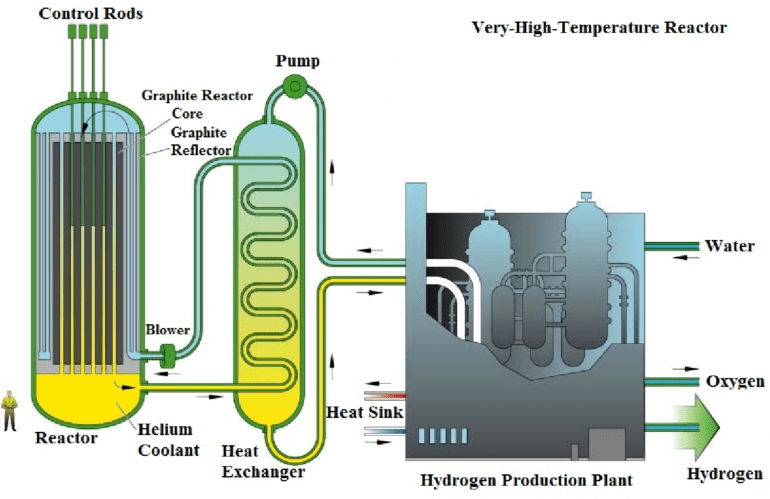TL;DR:
- AI offers immense potential to optimize Gen IV nuclear reactor performance.
- Gen IV reactors promise enhanced safety, efficiency, and waste reduction.
- AI can analyze vast amounts of data and predict potential issues in advance.
- AI algorithms can simulate and provide insights for efficient and safe reactor designs.
- Real-time analysis by AI can optimize fuel efficiency and reduce costs.
- AI can improve the management of the nuclear fuel cycle, minimizing waste.
- Challenges include accuracy, transparency, ethics, and regulatory considerations.
Main AI News:
The remarkable potential of artificial intelligence (AI) to optimize the performance of Gen IV nuclear reactors has garnered considerable attention within the nuclear energy sector. As the world grapples with the urgent imperative to curb carbon emissions and transition to cleaner energy sources, the significance of AI in improving the efficiency and safety of next-generation nuclear reactors cannot be overstated.
Gen IV nuclear reactors embody the future of nuclear power, boasting enhanced safety features, superior efficiency, and reduced waste compared to their predecessors. Nevertheless, the intricate systems governing the operations of these reactors present a plethora of challenges. This is where AI steps in, poised to revolutionize the sector.
AI possesses the extraordinary ability to analyze vast volumes of data and detect patterns that would elude human comprehension. It presents a promising solution to the challenges at hand. Machine learning algorithms, a subset of AI, can be trained to anticipate potential issues before they reach critical levels, thereby bolstering the safety and reliability of Gen IV reactors. These predictive capabilities have the potential to prevent accidents, minimize downtime, and optimize reactor performance.
Moreover, AI can play a pivotal role in the design and construction of Gen IV reactors. By simulating various scenarios, AI algorithms can provide valuable insights into the most efficient and secure reactor designs. This not only expedites the design process but also curtails costs by reducing the need for physical prototypes.
In addition to design and safety, AI can also optimize the fuel efficiency of Gen IV reactors. By analyzing real-time data from the reactor, AI can fine-tune the reactor’s operations to maximize fuel efficiency. This can yield substantial cost savings and a reduction in nuclear waste.
The impact of AI in optimizing Gen IV nuclear reactor performance extends beyond the reactors themselves. AI can also be harnessed to enhance the management of the nuclear fuel cycle, spanning from mining and refining to waste disposal. Through predicting demand and optimizing supply chains, AI ensures a steady supply of nuclear fuel while minimizing waste and environmental impact.
Nonetheless, the integration of AI into the nuclear energy sector poses its own set of challenges. Given the complexity of nuclear systems and the paramount importance of nuclear safety, AI systems must exhibit exceptional accuracy and reliability. Additionally, in a sector where safety reigns supreme, the need for transparency and explainability in AI decision-making becomes paramount.
The ethical and regulatory implications of AI within the nuclear industry also necessitate careful consideration. As AI systems become increasingly autonomous, questions regarding accountability and oversight become more pertinent. Regulatory frameworks must evolve in tandem with technological advancements to ensure that AI is utilized responsibly and ethically in the nuclear sector.
Notwithstanding these challenges, the potential benefits of AI in optimizing Gen IV nuclear reactor performance are too substantial to disregard. As the world progresses towards a cleaner and more sustainable energy future, AI could play a pivotal role in ensuring that nuclear power becomes a safe, efficient, and viable component of the energy mix.
Conclusion:
The integration of artificial intelligence (AI) in optimizing Gen IV nuclear reactor performance opens up new possibilities and opportunities in the market. AI-driven advancements can significantly enhance safety, efficiency, and waste reduction in the nuclear energy sector. This development presents an exciting frontier for businesses operating in the nuclear industry, as they can leverage AI technologies to improve their operations, design processes, and fuel efficiency. However, it is crucial for market players to address the challenges related to accuracy, transparency, ethics, and regulations to ensure the responsible and effective utilization of AI in the nuclear sector. By embracing the potential of AI, businesses can position themselves as leaders in delivering safe, efficient, and sustainable energy solutions for the future.

